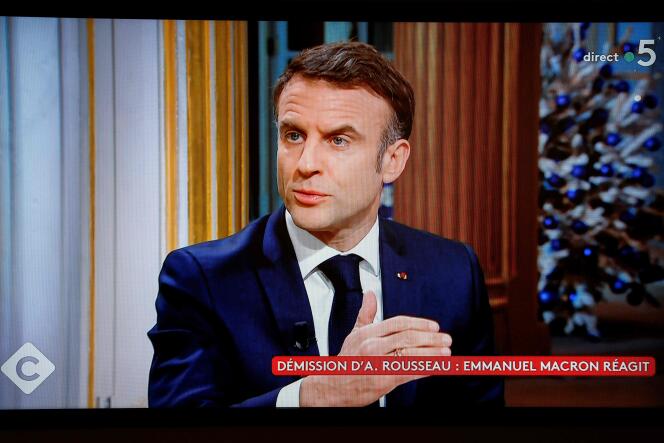


Determined to ensure the immigration bill was adopted before Christmas vacations at all costs, Prime Minister Elisabeth Borne and Interior Minister Gérald Darmanin asked MPs, at the risk of fracturing the majority, to vote for a bill that they sensed, if not wished, to be invalidated. As Macron admitted on television on Wednesday, December 20: "Is it because there were articles that are not conform to our Constitution that we had to say 'we're not making an agreement and therefore there's no law'? My answer is no."
On Tuesday, Darmanin proposed that senators adopt a bill containing measures that were "manifestly and clearly contrary to the Constitution." "But politics," said the interior minister, "is not about being a lawyer to the actual lawyers." It will therefore be up to the Constitutional Council "to do its job," he went on. The law was indeed submitted to the Council on Wednesday by the French president, so that it could "rule on the conformity of all or part of this law." Borne has herself acknowledged the fragility of this compliance.
While lawmakers are not expected to be infallible, "Parliament is still supposed to pass laws that are not contrary to the Constitution," commented constitutional expert and author Didier Maus to Le Monde. "I can't think of any other example of a government knowingly passing a law despite deeming it 'manifestly' contrary to the Constitution," reacted magistrate Eric Halphen on X.
With the adoption of the bill provoking an open crisis within the presidential camp, turning to the Constitutional Council appears to be the last resort for censoring the harshest measures conceded to the leaders of the right-wing Les Républicains (LR) party. There are things in this law "that I don't like, but which are not against our values," declared Macron at a cabinet meeting on Wednesday morning. In the evening, he confirmed that the text contains "things that may shock people," but "which in my view are effective."
The opposition denounced Macron's opportunism. "The Constitutional Council is not a conscience clearer," said Parti Socialiste (PS) leader Olivier Faure, while the left has also referred the matter to the institution chaired by former prime minister Laurent Fabius.
Constitutional expert Jean-Philippe Derosier, who is close to the PS, believes that Macron is seeking to "legitimize his law." The Constitutional Council, he added, is being "politically instrumentalized, with consequences that could be dramatic for our republican order." The censorship of certain measures "would enable the Rassemblement National to say, 'you can see that our Constitution does not allow us to ensure the security of our fellow citizens,'" said the law expert, at a time when the Rassemblement National (RN, far-right) and LR are strongly defending their plans to reform the Constitution on issues related to immigration and identity.
You have 35% of this article left to read. The rest is for subscribers only.
